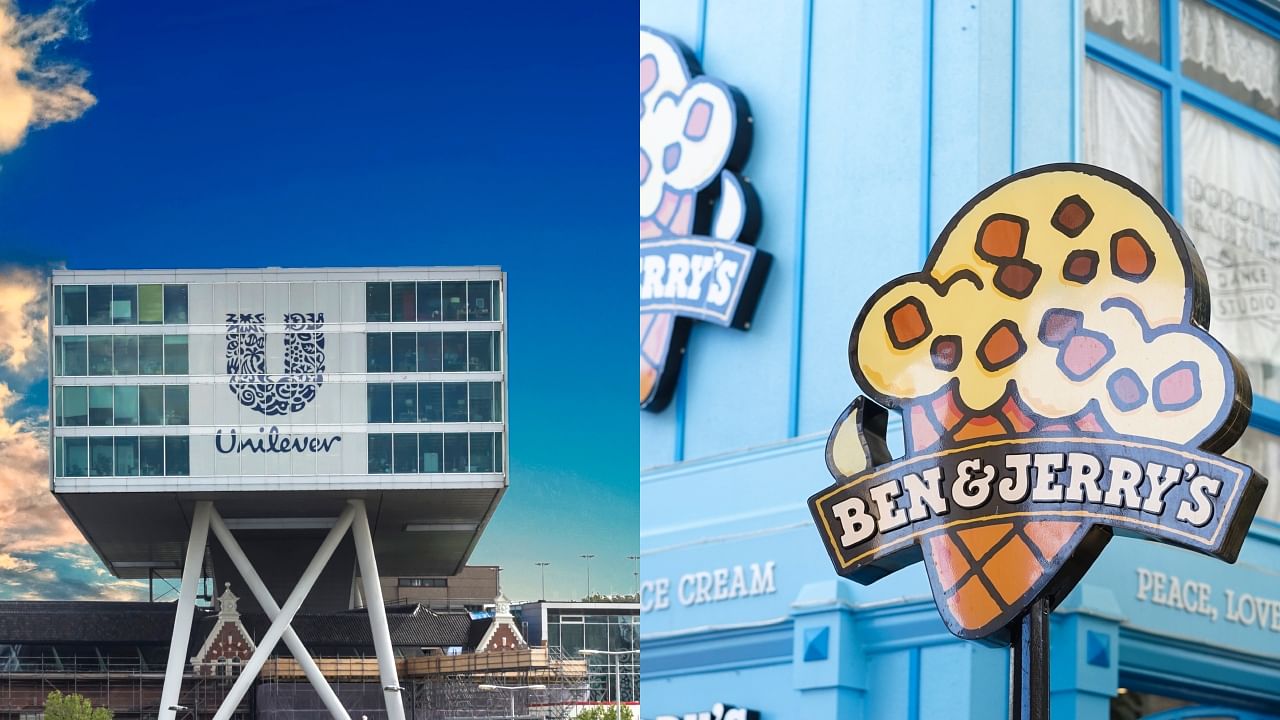
Image for representation.
Credit: iStock Photos
By Beth Kowitt
When Unilever Plc agreed to buy Ben & Jerry’s in 2000, the consumer giant was looking to acquire not just the small Vermont company’s ice cream operation but also its quirky, do-gooder ethos, which Unilever hoped to inject into its larger corporate culture.
For two decades, it was a happy union. Ben & Jerry’s grew into a €1 billion brand and got to preserve its social mission and independence, while Unilever capitalized on its position as the poster child for the corporate doing-well-by-doing-good movement.
Those days are over. Ben & Jerry’s independent board sued Unilever last week, alleging that its parent company broke an agreement by silencing its attempts to speak out in support of Palestinian rights. It’s just the latest development in the falling out between the two brands, which began in 2021 when Ben & Jerry’s said it would stop doing business in the Israeli-occupied West Bank because it was “inconsistent with our values.”
The clash is about more than the war in Gaza. Across corporate America, the calculus for companies has shifted wildly when it comes to speaking out and taking a stand. No topic today is apolitical, no issue uncontroversial. Supporting climate goals or inclusivity can lead to boycotts and backlashes (see Walt Disney Co, Bud Light, Target Corp, Harley-Davidson Inc, Tractor Supply Co, etc.). While companies were once desperate for their brands to stand for something meaningful, executives now often view it as safer for them to stand for nothing.
Nowhere has that change been more dramatic than at Unilever. For years, the company was a leader in the ESG movement, instilling every brand with a purpose — from Vaseline assisting in skin care for Syrian refugees to Hellmann’s mayo taking on food waste. Ben & Jerry’s was the gold standard, speaking out in support of gay marriage and fighting climate change, backing the Occupy Wall Street movement and calling out police brutality and White supremacy. But as Unilever’s results flagged and an activist investor circled, the company softened or slashed its mission-based pledges such as reducing the use of plastic packaging and paying direct suppliers a living wage.
Ben & Jerry’s, meanwhile, has refused to play along. To convince the founders to sell 25 years ago, Ben & Jerry’s independent board was given oversight of the company’s social mission, while Unilever was in charge of the brand’s finances and operations. That division of labor may have worked during simpler times, but Unilever has now discovered the hard way that those two things are not so easily disentangled. To Unilever, Gaza is a business issue, with implications for financial performance; Ben & Jerry’s views it as a moral one. Arguably, they are both right.
The Ben & Jerry’s acquisition at the turn of the century kicked off a flood of big consumer giants gobbling up small brands that fashioned themselves as socially conscious, sustainable or healthy enterprises. Coca-Cola Co acquired Odwalla in 2001 and a stake in Honest Tea in 2008. PepsiCo Inc bought Naked Juice in 2007 — the same year Clorox Co added Burt’s Bees to its portfolio. A year earlier, Tom’s of Maine sold to Colgate-Palmolive Co. These so-called halo brands went for a premium, buoyed by the promise that they would showcase their new parent company’s commitment to the environment and good corporate citizenship. Like Unilever, other big multinationals promised not to mess with their brand magic and instead learn from their benevolent ways.
Now that grand experiment is over. Coca-Cola sold off Odwalla in 2020 and discontinued Honest Tea in 2022. A private equity firm acquired Naked Juice from PepsiCo in 2021. Tastes have changed. The pandemic forced companies to simplify their supply chains and cut back on their offerings. Some companies discovered that you cannot simply buy a purpose or a mission, which is out of fashion these days anyway. Others found that the halo wasn’t as valuable as they initially thought — and in some cases, even a nuisance.
Ben & Jerry’s will soon be added to that list. Unilever has said it will sell or spin off the brand and the rest of its ice cream business. When it does, it’s unclear exactly what will happen to Ben & Jerry’s independent board and the causes it has long supported. This time around, not every potential buyer will view its social consciousness as an asset.